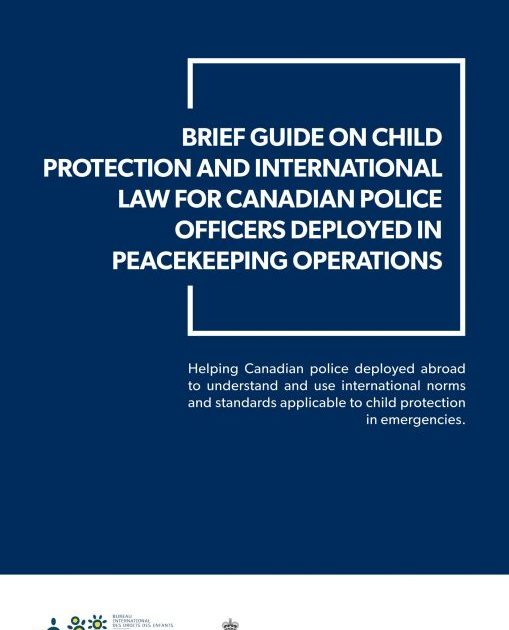
Today, we celebrate World Children’s Day, which highlights the adoption of the Convention on the Rights of the Child by the United Nations. This day offers a unique opportunity to promote and celebrate the rights of the child. It is also the opportunity to advocate for a world in which every girl and boy can go to school, access quality care and services, express themselves and be heard and grow and thrive without violence and exploitation. Discover the action of the IBCR and its partners in nearly 40 countries, including Québec and Canada, to promote and enforce these rights.
Child protection, a core mandate of UN Peace Keeping Operations, by Guillaume Landry
Today, millions of girls and boys must cope with the effect of war and armed violence. Some will be used or recruited, others will be kidnapped or trafficked. Many children living in countries affected by armed conflict are denied schooling, care, protection, humanitarian assistance and their right to play, participate and access basic services. Today, girls and boys in Syria, Yemen and Central African Republic will be victims of sexual violence because of the armed conflict. Children in Afghanistan, Libya and South Sudan will be detained and exploited because they tried to flee the violence. Adolescents in Honduras, Congo and the Philippines will witness or be the victims of criminal groups and armed violence.
This is why peacekeeping personnel – military, police and civilians – are deployed around the world. They are sent to protect civilians, prevent abuse, enforce peace. Child protection has become a core mandate in their duty.
Since 2011, the IBCR entered in a collaboration with the United Nations Department of Peacekeeping Operations to evaluate the quality of tools and approaches used on child protection when training civilian, police and military personnel about to be deployed in peacekeeping operations. Some 225 training tools on child protection were analysed, and 79 peacekeeping training centres around the world were consulted. This led to reforms in the way child protection training prepare United Nations personnel before they get deployed to missions.
Several workshops and consultations took place with members states of the United nations to validate the orientation of the new harmonised training approach promoted by the UN Department on child protection. The Bureau was then mandated to develop the new course, targeting individual police personnel deployed as part of UNPOL. The training package is composed of nine modules, building the skills and attitude required when monitoring and reporting violations of children’s rights, when communicating with a child, when coordinating actions with other humanitarian actors or when arresting and detaining children. The course has been validated by members states and a series of child protection agencies, and it was piloted in Italy with leading peacekeeping training institutions.
This year, the Bureau has been training over 70 trainers from 40 countries to help integrating a permanent and evaluated course on child protection in the mandatory pre-deployment training for police personnel. Canada has been one of the first country to reform its pre-deployment training by integrating such a course on child protection, and the Bureau regularly facilitates this segment of the training together with the Royal Canadian Mountain Police. Recently, a Brief Guide On Child Protection And International Law For Canadian Police Officers Deployed In Peacekeeping Operations has been published to support the action of Canadian police deployed in Colombia, Haiti, Iraq, Mali, occupied Palestinian territories and Ukraine.
On December 5th, the Bureau will facilitate in Uganda the last of a series of training of trainers, leading to the certification of professional police instructors from over 16 countries.
Guillaume Landry is Director of the International Bureau for Children’s Rights.





